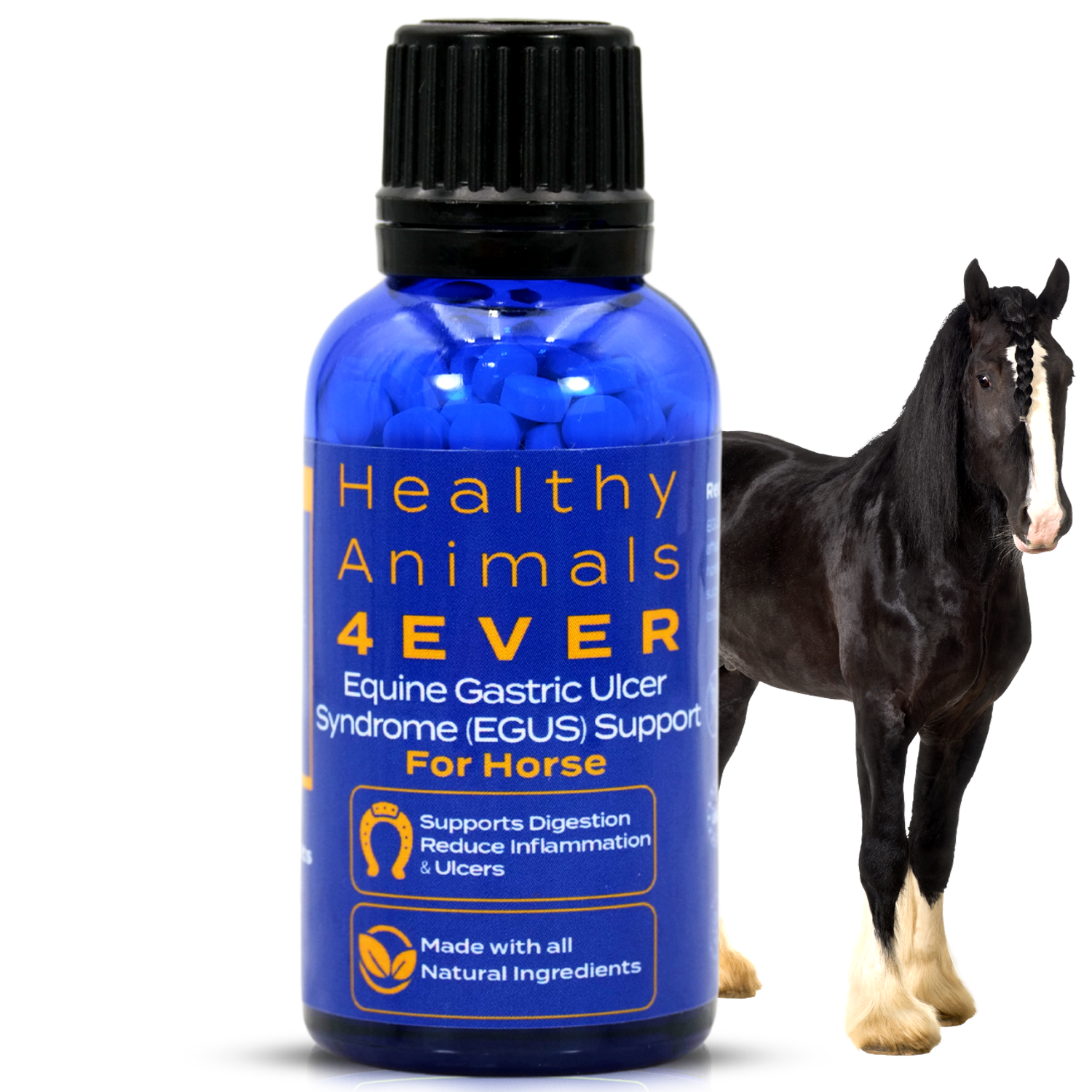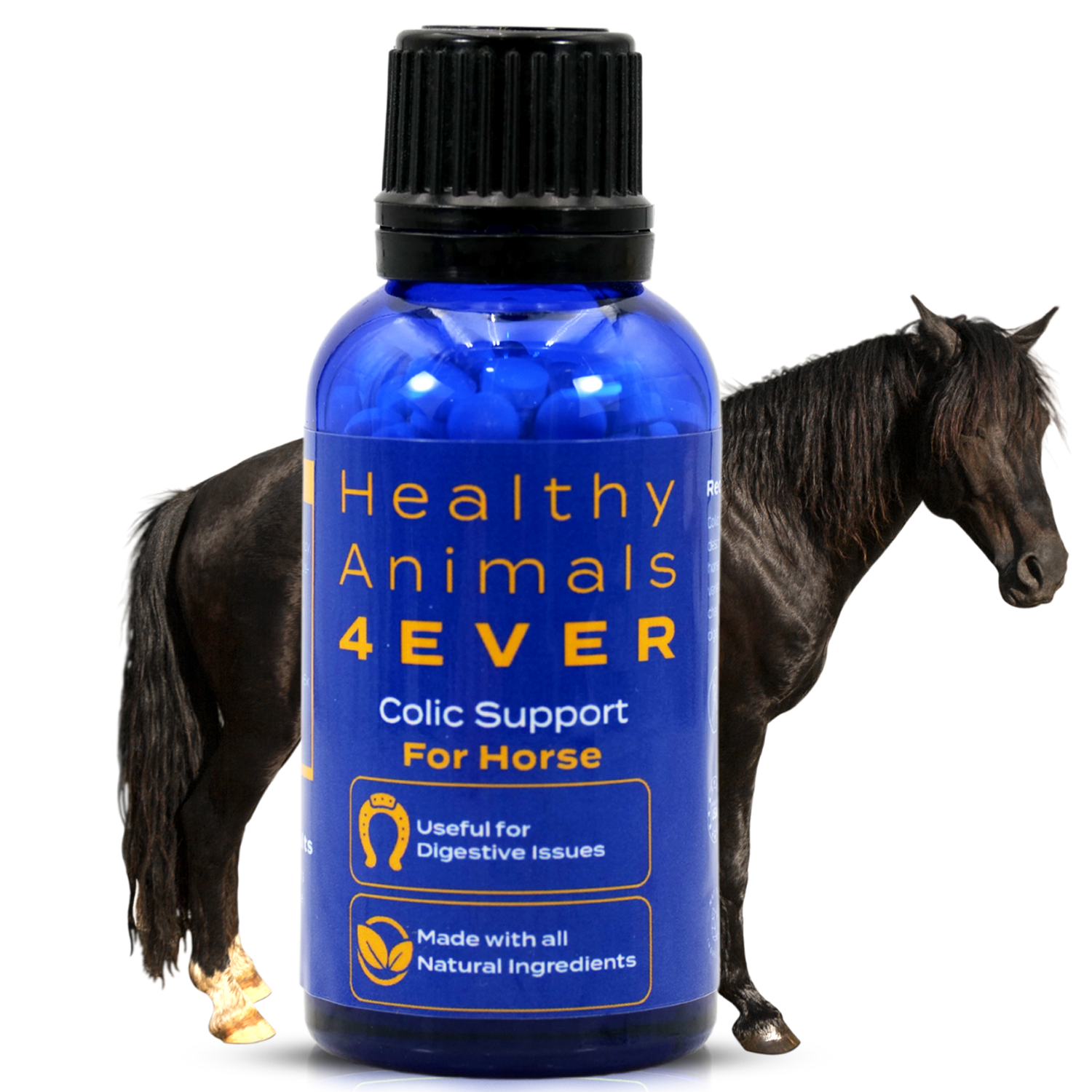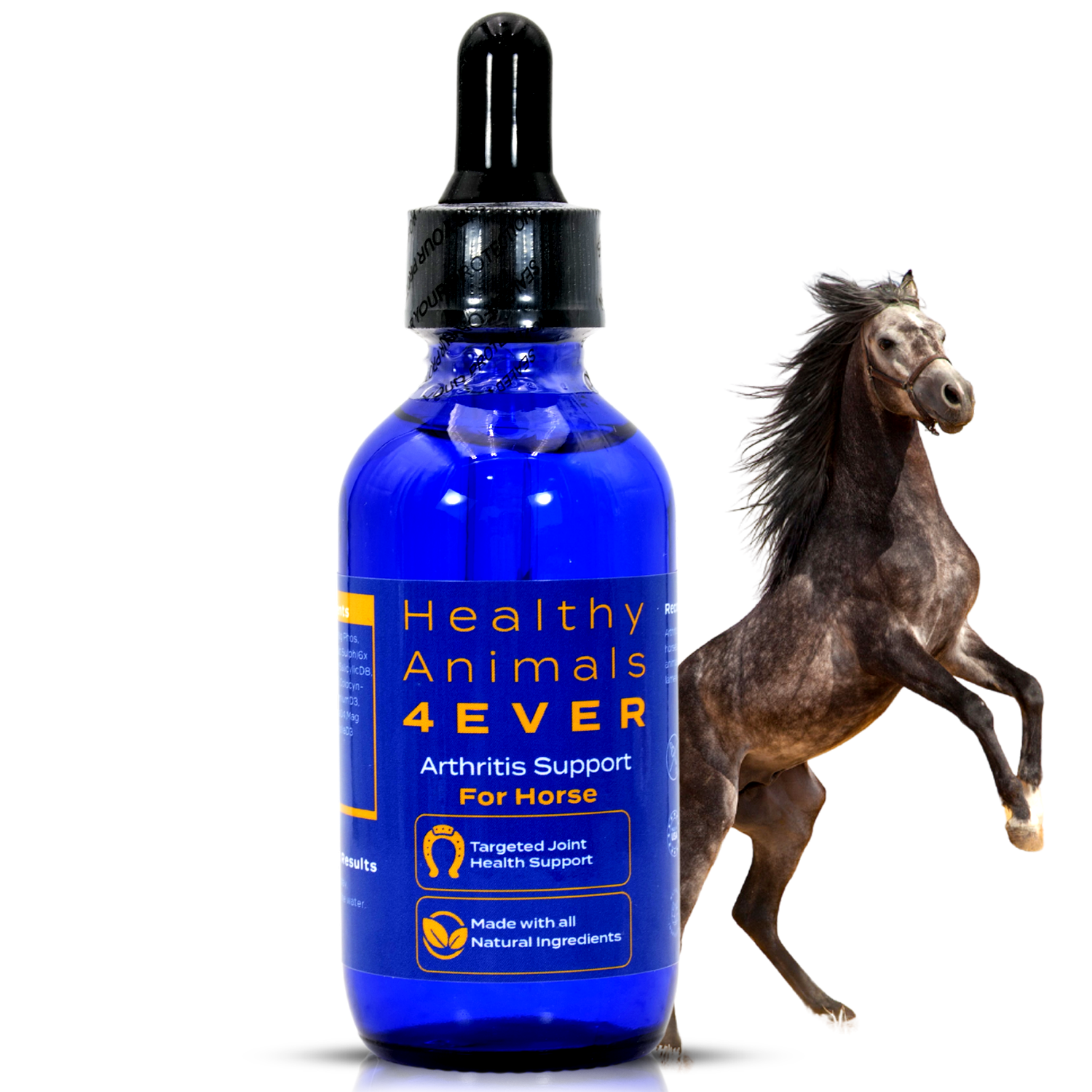Introduction to Homeopathy for Horses: A Holistic Approach to Equine Health
When it comes to the well-being of our beloved equine companions, it is crucial to consider holistic healthcare options that complement traditional veterinary practices. As horse owners seek alternative treatments, homeopathy has become a natural and gentle healing modality that has gained significant popularity.
In this blog post, we will embark on a journey through homeopathy for horses, exploring its numerous benefits to equine health and well-being. We will dive into the core principles that guide this holistic approach, uncover its advantages, and shed light on the commonly used remedies that have proven effective in the fascinating world of homeopathy for horses.
By the end of this exploration, you will understand how homeopathy can contribute to your equine companions' overall health and vitality.
Join us as we embark on this enlightening journey, discovering the potential of homeopathy in nurturing the well-being of our cherished horses.

-
Understanding Homeopathy:

Homeopathy, a medical system founded by Samuel Hahnemann, a German physician, during the late 18th century, is based on two essential principles known as the Principle of Similars and the Principle of Minimum Dose. These principles serve as the foundation for homeopathy and guide its approach to healing.
The Law of Similars: According to this principle, "like cures like." It means that a substance that can cause symptoms in a healthy individual can be used in a highly diluted form to treat similar symptoms in a sick individual. This principle is commonly known as the "similarity principle."
The Principle of Minimum Dose: Homeopathic remedies are formulated by undergoing a process known as potentization, which entails diluting a substance and vigorously shaking it. This process is believed to enhance the substance's healing properties while minimizing potential toxic effects. The more a substance is diluted and succussed, the more potent it becomes.
2. Benefits of Homeopathy for Horses:

Homeopathy offers several advantages when it comes to treating horses:
- Holistic Approach: Homeopathy embraces a comprehensive approach to horse health, recognizing the connection between the body, mind, and spirit. By addressing the underlying causes of illness rather than merely alleviating symptoms, homeopathy aims to restore balance and stimulate the horse's natural healing abilities. This comprehensive approach promotes overall well-being and supports long-term health.
- Gentle and Non-Invasive: One of the significant advantages of homeopathy is its gentle and non-invasive nature. Homeopathic remedies are prepared in highly diluted forms, making them safe and suitable for horses of all ages, including foals, pregnant mares, and sensitive individuals. Unlike some conventional treatments that may have harsh side effects, homeopathy has no known contraindications, side effects, or risk of addiction.
- Individualized Treatment: Homeopathy recognizes that each horse is unique, and their symptoms and responses to treatment may vary. A qualified homeopathic veterinarian considers the physical symptoms and the horse's temperament, behavior, and past medical history. This individualized approach allows customized treatment plans tailored to the horse's specific needs, maximizing the effectiveness of the remedies.
- Complementary to Conventional Medicine: Homeopathy can work alongside traditional veterinary care, complementing and enhancing its effectiveness. It is important to note that homeopathy is not intended to replace conventional treatments, such as surgery or antibiotic therapy, but rather to complement them. Homeopathy can provide additional support, improve the horse's overall well-being, and potentially reduce the reliance on certain medications or treatments.
- Promotes Overall Well-being: Homeopathy promotes overall well-being in horses by addressing the root causes of ailments and stimulating the body's innate healing mechanisms. It supports the body's natural defenses, enhances vitality, and helps horses maintain optimal health. Homeopathy's personalized and holistic nature can positively impact the horse's mental and emotional state, reducing stress and promoting balance and harmony.
3. Common Homeopathic Remedies for Horses:
Homeopathic remedies for horses cover a wide range of acute and chronic conditions.
Here are a few commonly used remedies:
- Arnica Montana: This remarkable remedy is highly appreciated for treating musculoskeletal injuries, bruising, and trauma. It is often used after strenuous exercise, falls, or accidents. Arnica Montana helps reduce pain, swelling, and inflammation, supporting your horse's recovery process. It can also aid in preventing the development of complications associated with injuries.
- Aconitum napellus: Known as "Aconite," this remedy is frequently used for sudden-onset illnesses and conditions related to acute fear or panic. It is commonly used during the initial stages of fevers, respiratory infections, and anxiety-induced situations. Aconitum napellus helps reduce inflammation, alleviate restlessness, and support the body's natural defenses, providing relief and promoting a faster recovery.
- Calendula officinalis: Calendula is a versatile remedy often utilized for wound recovery and promoting healthy tissue healing. It possesses antiseptic properties that aid in preventing infections and reducing the risk of complications. Calendula can accelerate the healing process and support healthy scar tissue formation. It benefits various wounds, including cuts, abrasions, and surgical incisions.
- Hypericum perforatum: This remedy is highly regarded for treating nerve-related conditions and injuries. Hypericum perforatum is often used for nerve pain like tail, hooves, or spine injuries. It helps alleviate pain, soothe nerve irritation, and support healing.
- Chamomilla: Known for its calming properties, Chamomilla is beneficial for horses experiencing emotional stress or discomfort. It is commonly used for conditions like colic, teething pain in foals, and irritability. Chamomilla helps promote relaxation, relieve tension, and restore emotional balance in horses.
- Lycopodium clavatum: This remedy is frequently employed for digestive issues, particularly in cases of bloating, gas, and diarrhea. Lycopodium clavatum effectively addresses conditions related to dietary changes, stress, or imbalances in the digestive system. It supports healthy digestion, reduces discomfort, and promotes overall gastrointestinal well-being.
HORSE EQUINE GASTRIC ULCER SYNDROME SUPPORT It may help with inflammation and poor digestion.
- Pulsatilla: Pulsatilla is a valuable remedy for respiratory conditions, particularly nasal congestion, cough, or a thick nasal discharge. It is often used for respiratory infections, allergies, and sinusitis. Pulsatilla helps relieve congestion, promotes sinus drainage, and supports respiratory health in horses.
-
Nux vomica: This remedy is beneficial for addressing digestive disorders commonly encountered in horses. It can assist in relieving symptoms associated with colic, indigestion, and constipation. Nux vomica helps restore balance to the digestive system. It can be effective in cases where stress, dietary changes, or overexertion have disrupted normal digestive function. It promotes proper digestion, relieves discomfort, and supports your horse's well-being.
HORSE COLIC SUPPORT may help with colic, abdominal pain, discomfort, bloating, and gas.
- Rhus Toxicodendron: This remedy is often employed for musculoskeletal conditions characterized by stiffness, soreness, and lameness. It can relieve arthritis, strains, sprains, and rheumatic discomfort. Rhus Toxicodendron helps alleviate pain, improve mobility, and promote healing.
HORSE ARTHRITIS PRODUCT may help with inflammation and pain associated with this degenerative joint disease without any negative side effects. It is a 100% natural Remedy.
- Belladonna: Known as "Deadly Nightshade," this remedy is beneficial for conditions marked by sudden and intense inflammation, high fever, and throbbing pain. It can be applied in acute infections, such as respiratory ailments, fevers, and certain eye conditions. Belladonna helps reduce inflammation, ease discomfort, and support the body's natural defense mechanisms.
- Silicea: Silicea is a valuable remedy for addressing chronic skin conditions in horses. It can assist in treating conditions like abscesses, skin infections, and slow-healing wounds. Silicea promotes the expulsion of foreign bodies, enhances the body's ability to fight infections, and supports the skin's healing process.
HORSE SKIN CONDITIONS SUPPORT is a supportive product for irritated skin and inflammation.
- Thuja occidentalis: This remedy is commonly used for addressing various skin conditions, including warts, sarcoids, and other abnormal growths. Thuja occidentalis helps stimulate the immune system's response and resolve skin issues. It supports the natural balance and health of the skin, assisting in reducing abnormal growth.
To ensure optimal results, seeking guidance from a qualified homeopathic veterinarian who can carefully assess your horse's specific symptoms and needs is crucial.
This expert will determine the most suitable remedy, dosage, and administration frequency for your horse's unique circumstances.
4. Working with a Homeopathic Veterinarian:

While some homeopathic remedies can be safely used by horse owners, consulting with a qualified homeopathic veterinarian for more complex conditions or chronic ailments is recommended. A homeopathic vet will better understand the remedies and their appropriate application.
During the initial consultation, the homeopathic vet will take a detailed case history, including the horse's medical background, current symptoms, behavior, and other relevant information. This comprehensive assessment helps the vet understand the horse's overall health and identify the most suitable homeopathic remedies.
Homeopathic remedies come in diverse forms, such as pellets, liquids, or powders, providing flexibility in usage. The vet will prescribe the appropriate remedy based on your horse's needs. The dosage and frequency of administration will be determined by the severity of the condition and your horse's response to the remedy.
It's important to note that homeopathy works gradually, stimulating the body's self-healing mechanisms. Improvement may not be immediate, especially for chronic conditions. So, patient and consistent follow-up with the vet is crucial for monitoring your horse's progress and adjusting the treatment plan.
5. Integrating Homeopathy into a Holistic Care Plan:
Incorporating homeopathy into a holistic care plan for horses can be further enhanced by integrating other complementary practices that contribute to their overall well-being:
- Optimal Nutrition: Providing horses with a balanced and appropriate diet is crucial for their overall health and well-being! Consulting with an equine nutritionist can offer valuable insights and recommendations to ensure your horse receives the nutrients necessary for optimal vitality and a robust immune system. A well-rounded diet appropriate to your horse's needs helps support their energy levels, proper growth and development, healthy digestion, and vital immune function. By prioritizing optimal nutrition, horse owners can contribute to their horse's long-term health and performance.
- Regular Exercise: Incorporating regular exercise into a horse's routine is crucial for promoting their physical and mental well-being. Horses are naturally active animals that thrive on movement and regular physical activity. Engaging horses in regular exercise helps maintain healthy muscle tone, improve cardiovascular health, and support proper digestion. It also aids in preventing stiffness, leading to discomfort and reduced mobility. Additionally, exercise provides mental stimulation and helps alleviate boredom, contributing to your horse's overall contentment and happiness. Regular exercise is essential to a holistic care plan for horses through daily turnout, riding sessions, lunging, or trail-riding activities. It enables horses to engage in their natural behaviors, promotes physical well-being, and improves their overall quality of life.
- Stress Management: As sensitive animals, horses require effective stress management strategies to promote well-being. Creating a serene and harmonious environment, incorporating relaxation techniques like massage or aromatherapy, and addressing potential sources of stress can significantly contribute to your horse's overall health and happiness. By implementing these stress management practices, horse owners can help their equine companions maintain a state of tranquility and enhance their overall well-being.
-
Natural Horsemanship: Embracing the principles of natural horsemanship allows horse owners to establish a deep bond and effective communication with their equine partners. This approach centers on understanding the horse's instincts, utilizing gentle training methods, and promoting a cooperative partnership built on mutual respect. By recognizing and working with the horse's natural behaviors and needs, natural horsemanship cultivates trust, reduces anxiety, and strengthens the human-horse connection. Through this approach, horse owners can create a harmonious and fulfilling relationship that enhances their horse's well-being and encourages their innate qualities to shine.

- Regular Veterinary Care: While homeopathy can complement conventional veterinary care, it is important to continue routine check-ups, vaccinations, dental care, and deworming as recommended by a traditional veterinarian. Regular veterinary care ensures preventative measures are in place and allows for early detection and treatment of potential health issues.
By combining homeopathy with these holistic practices, horse owners can provide comprehensive care that nurtures their horse's physical, mental, and emotional well-being. This integrated approach supports their natural healing abilities, promotes vitality, and fosters a strong bond between horse and caregiver.
Conclusion:
In conclusion, homeopathy offers a gentle and holistic approach to promoting the health and well-being of horses. It aims to restore balance and activate the horse's innate healing abilities by considering the interconnectedness of the body, mind, and spirit. The individualized treatment approach, adjusted to each horse's specific symptoms and needs, enhances the effectiveness of homeopathic remedies. Homeopathy can contribute significantly to the overall well-being of horses when integrated into a holistic care plan that includes proper nutrition, regular exercise, stress management, natural horsemanship, and regular veterinary care.
Combining the best of traditional and alternative therapies, you can provide comprehensive care that supports your horse's natural healing abilities and fosters a strong bond between you.
With its many benefits and holistic principles, homeopathy is a valuable option for horse owners seeking alternative and complementary approaches to promote their equine companions' health, vitality, and happiness.













